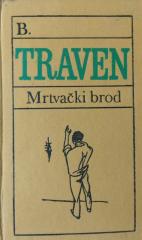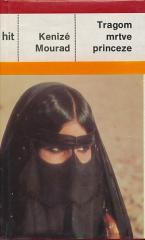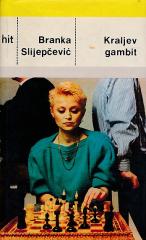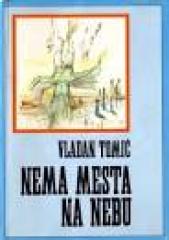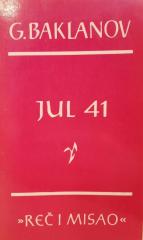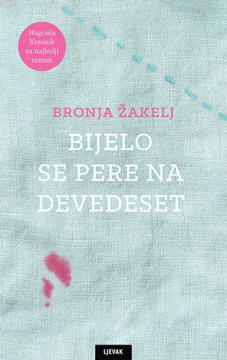
Bijelo se pere na devedeset
Autobiografski roman Belo oprano devedeseto je potresna i dirljiva književna priča o suočavanju sa bolešću, prolaznošću i strahovima. To je i priča o ljubavi – između ćerke i majke, brata i sestre, unuka i bake, odrastanja devojčice i mladića...
Sa prvih stranica romana, u društvu devojke Bronje, prelazimo u sedamdesete i osamdesete godine prošlog veka, gde nas ona upoznaje sa svojom porodicom: obožavanom majkom Mitom, tatom Janezom, četiri godine mlađim bratom Rokom i Dadom. , baba po majčinoj strani. Ta mala zajednica živi u Ljubljani, gde su Bronjini i Rokovi ujaci i tetke takođe porodični prijatelji. Emocija koja vlada u ovom malom domaćinstvu je bliskost, posebno ona između naratorke Bronje i njene majke, kojoj je ovo delo i upućeno. Svetlo i razigrano doba detinjstva je zatišje pred olujom jer su se mračni oblaci smrti nadvili nad celu porodicu. Bronjin svet munjevitom brzinom potresa dijagnoza njene majke.
Kao četrnaestogodišnjakinja, Bronja se nalazi u centru vrtloga – dovoljno stara da shvati šta se dešava, ali nedovoljno stara da bi imala bilo kakav uticaj na situaciju. Belo pranje u devedesetoj je pronicljiv roman o iskustvu bolesti i gubitka, krhkosti međuljudskih odnosa, borbi za život, nadi i beznađu, strahu, patnji i potrazi za svetlom tačkom u mrklom mraku.
Belo pranje na devedeset je šokantno duhovit i inspirativan roman koji opisuje životnu priču naratora koji je odrastao 1970-ih i 1980-ih. Njen svijet iz djetinjstva čine porodica, emisija More i mornari, Gavrilović i prenos sarajevske Olimpijade. Ali dok govorimo o navedenom, autobiografski roman je pre svega priča o odrastanju, suočavanju sa gubitkom i bolešću, priča o pripitomljavanju straha i svega što ne želimo da vidimo dok se neminovno ne suočimo sa tim.
No copies available
The last copy was sold recently.
